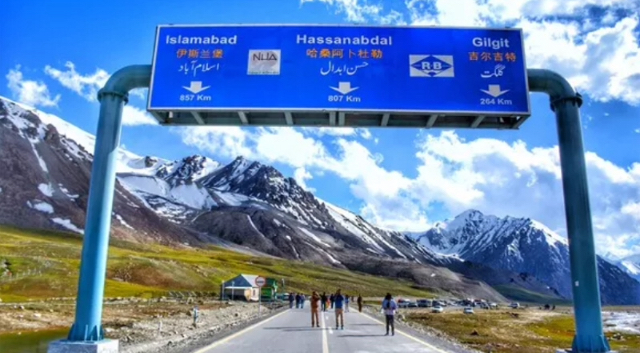Washington DC: This month, Russia joined South Korea, Saudi Arabia, Iran, Israel and the UAE to honour India’s Prime Minister Narendra Modi with the highest state award acknowledging his contributions in India’s diplomatic successes.
This month, a senior member of the US House Foreign Affairs Committee, Congressman Joe Wilson, introduced bill HR 2123 to declare India a NATO ally. The bill calls India “a pillar of stability in the region”. Like other global powers, the U.S. government considers India a net provider of regional security and supports India’s entry in the United Nations Security Council and the Nuclear Suppliers’ Group.
Last year, the United Nations, acknowledging Prime Minister Modi’s contribution to climate, energy and water security, bestowed on him the UN Champions of the Earth award.
All these accomplishments show that India under the leadership of Prime Minister Modi is beginning to make genuine efforts to claim a more central lead role on the global stage. As the world’s second largest population, the second-largest military by personnel strength, the fifth-largest by defence expenditure, the fifth largest economy by nominal GDP, and the second largest by purchase power parity, India now feels confident to proactively shape world events and bid farewell to old habits of protest and adjust.
India’s higher global profile is also transforming the world’s view on its relationship with Kashmir. A large majority of nations are now moving away from the dead-end discussion on Kashmir’s sovereignty and trying to engage New Delhi to push for better developmental and right standards. This band of nations also contains the majority of the members of the Islamic Organization Conference, including two arch rivals and heavyweights of the Muslim world, the Kingdom of Saudi Arabia and the Islamic Republic of Iran. It seems that while, on one hand, the world has thrown its weight behind Prime Minister Modi to help contain and eliminate terrorism, the same nations are becoming more critical of Pakistan’s interference in Kashmir which is seen as one of the leading causes of spread of religious extremism in the region.
No conversation on Jammu & Kashmir is complete without the mention of Gilgit Baltistan which remains in Pakistan’s occupation. There is global pressure on India to own responsibility towards Gilgit Baltistan, especially as local dismay against Pakistan’s inability to grant basic rights and share in services and resources seeps deeper. India’s relevance in the picture is also growing since many countries are now critical of China’s illegal exploitative activities in Gilgit Baltistan that look like a rerun of China’s policies in Xinjiang and Tibet.
India, with an ability to shape global decisions in her favour, also feels better placed to confront the chronic challenges, including the land disputes with Pakistan and China. The border settlement agreement with Bangladesh is a testimony to this success. Prime Minister Modi is the first leader to talk about Gilgit Baltistan’s constitutional relationship with India during his annual address to the nation. India now regularly raises Gilgit Baltistan at the United Nations. It objects to Pakistan’s nefarious designs to annex Gilgit and turn into China’s backyard. India, which believes that Pakistan’s withdrawal from Gilgit Baltistan is the first step to take the Kashmir issue to its logical conclusion, received a shot in the arm last year when the U.S. government criticised China for challenging India’s sovereignty by developing the China Pakistan Economic Corridor (CPEC) through Gilgit.
Optimism aside, there is more to be done to improve India’s relationship with Gilgit Baltistan. One of the primary issues is granting people of Gilgit Baltistan a representation in the national legislative bodies. This includes the Jammu Kashmir legislative assembly, the J&K council and the Indian Parliament. The time has come for India to let go of symbolism and nominate real people on the reserved slots. Some of these slots could go to the refugees of Gilgit Baltistan, Kotli and Mirpur who are currently living in Jammu Kashmir, Himachal Pradesh and other parts of India. India could also introduce academic scholarship for the students and financial help for patients visiting Indian health institutes. India ought not to discriminate against its own citizens of Gilgit Baltistan while inviting Pakistanis to Indian educational and health facilities on a regular basis.
As India votes to choose a new leader, the current regime of Prime Minister Modi has set the bar on the issue of merger of Gilgit with India and whoever gets power after the elections will have to improve on the existing benchmark standards to sustain popularity.
The time to walk the talk with determination and perseverance is now.
Senge H. Sering is President of Institute for Gilgit Baltistan Studies, Washington DC.

